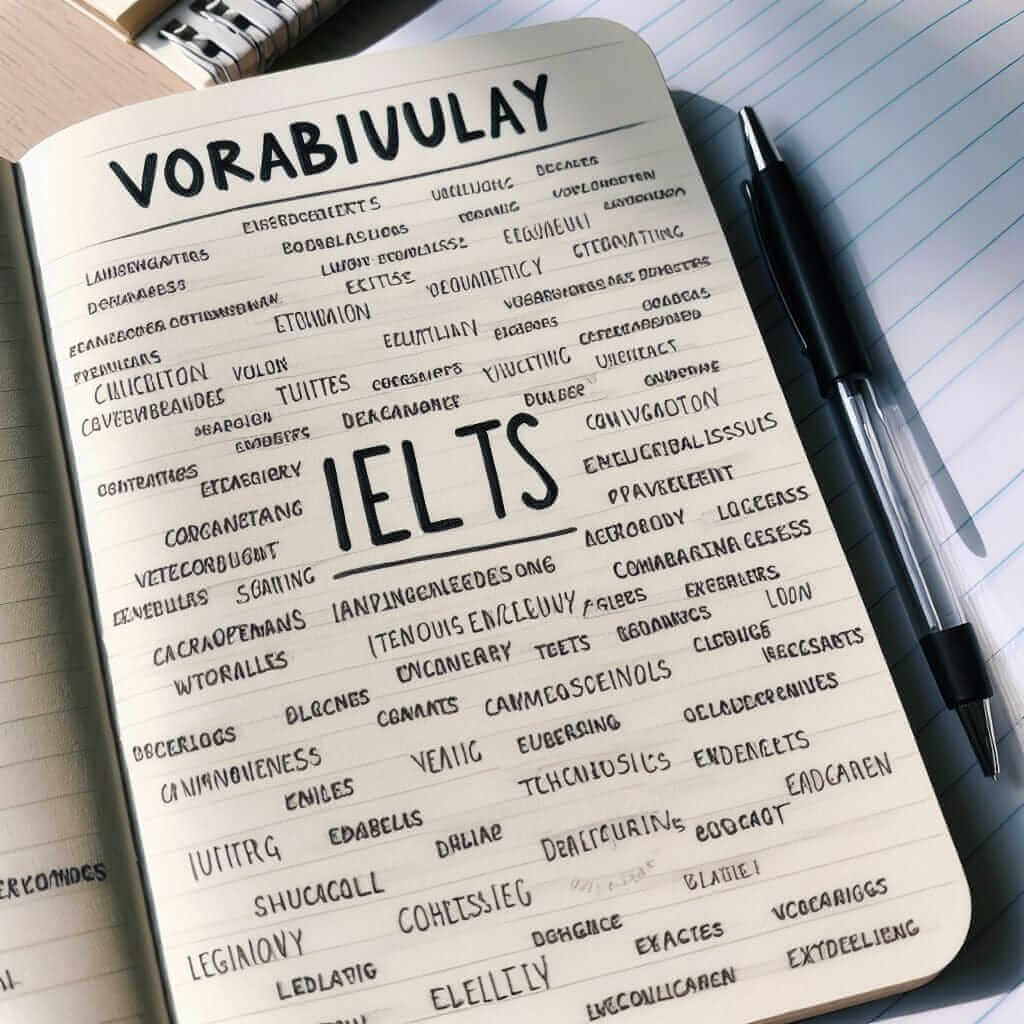For many IELTS test-takers, the Speaking section can feel like a high-pressure race against the clock. One common fear is the dreaded moment when your mind goes blank, and you simply can’t come up with a good answer. But don’t worry! As an IELTS instructor with over 20 years of experience, I’m here to tell you that this is entirely surmountable. This article will provide you with practical strategies and insights to help you confidently navigate the IELTS Speaking test and banish those “deer in the headlights” moments.
Understanding the Challenge: Why We Freeze Up
Before diving into solutions, let’s acknowledge the reasons why this happens:
- Exam Pressure: The formal setting, the time limit, and the presence of an examiner can all contribute to anxiety, making it harder to think clearly.
- Unfamiliar Topics: Sometimes the examiner will ask about subjects you haven’t prepared for or have limited experience with.
- Perfectionism: Striving for the absolute “perfect” answer can lead to overthinking and ultimately, paralysis.
Strategies to Unlock Your Speaking Fluency
Now, let’s focus on what you can do to overcome these hurdles and ensure you can always generate a strong response:
1. Expand Your Vocabulary and Idea Bank:
- Diverse Reading: Read widely on a variety of topics – news articles, opinion pieces, fiction, scientific journals. This exposes you to a broader range of vocabulary and ideas.
- Topic-Specific Vocabulary Lists: Create your own vocabulary lists for common IELTS themes like education, technology, the environment, and travel. Use a good learner’s dictionary to note down synonyms and related terms.
- Idea Generation Practice: Regularly brainstorm ideas related to various IELTS topics. Even if you don’t know a lot about a subject, jotting down basic thoughts can help you think more flexibly on your feet.

2. Master the Art of Paraphrasing:
Paraphrasing is your secret weapon when you can’t recall a specific word or phrase. Here’s how to do it effectively:
- Use Synonyms: Instead of “important,” try “crucial,” “significant,” or “vital.”
- Change Sentence Structure: If you can’t remember a complex phrase, break it down into simpler sentences.
- Explain the Concept: If you forget a specific term, describe what it means using other words. For example, instead of “biodiversity,” you could say “the wide variety of different plants and animals in an ecosystem.”
3. Practice Speaking, Even When You’re Alone:
- Think Aloud: Narrate your daily activities, thoughts, or opinions in English. This helps you get comfortable with expressing yourself spontaneously.
- Record Yourself: Speaking into a voice recorder and listening back helps you identify areas for improvement in fluency, pronunciation, and grammar.
- Mock Speaking Tests: Simulate the exam environment by taking practice speaking tests with a teacher or a language partner.
4. Don’t Be Afraid to Buy Time:
If you draw a blank, these phrases can give you a moment to collect your thoughts:
- “That’s an interesting question. Let me think about that for a second.”
- “Well, I haven’t considered that before, but…”
- “To be honest, I’m not entirely sure, but I could say that…”
5. Focus on Communication, Not Perfection:
Remember, the IELTS Speaking test assesses your ability to communicate effectively, not to deliver flawless, academic lectures.
- Relax and Be Yourself: A natural, conversational tone is more important than using overly complex language.
- Develop Your Ideas: Provide reasons and examples to support your opinions and elaborate on your answers whenever possible.
- Don’t Be Afraid to Make Mistakes: Everyone makes occasional errors. The key is to keep going and demonstrate your overall fluency.
Example from Real IELTS Speaking Tests:
Let’s say you get this Part 1 question:
“Do you enjoy visiting museums?”
Even if you don’t frequently visit museums, you can still provide a thoughtful response. Here’s how you could approach it:
“To be honest, I don’t often go to museums, but I do find them quite interesting. I think they offer a unique glimpse into history and culture. I particularly enjoy museums with interactive exhibits because they make learning more engaging.”
Top Tips for Success:
- Preparation is Key: The more you practice, the more confident you’ll become.
- Expand Your Vocabulary: A rich vocabulary will help you express yourself more fluently.
- Think on Your Feet: Train yourself to think quickly and come up with ideas on the spot.
- Stay Calm and Positive: A positive attitude can make a big difference in your performance.
Conclusion
Remember, the key to conquering the IELTS Speaking test is effective preparation and a confident mindset. By implementing the strategies outlined in this article, you’ll be well-equipped to handle any question that comes your way. So, go forth, practice diligently, and approach the exam with the certainty that you have what it takes to succeed!